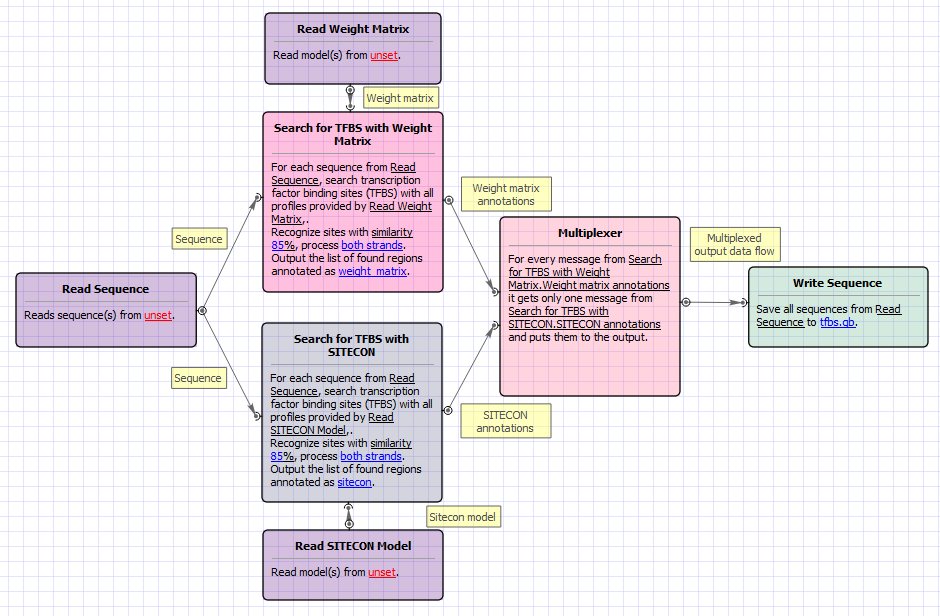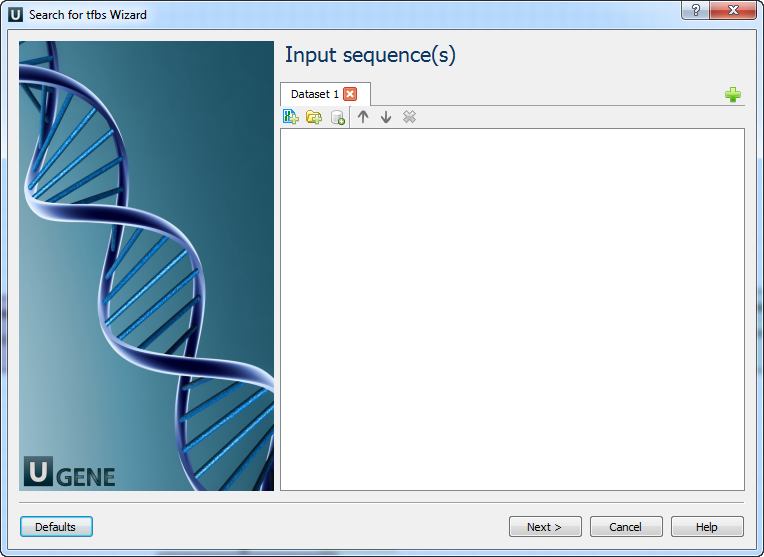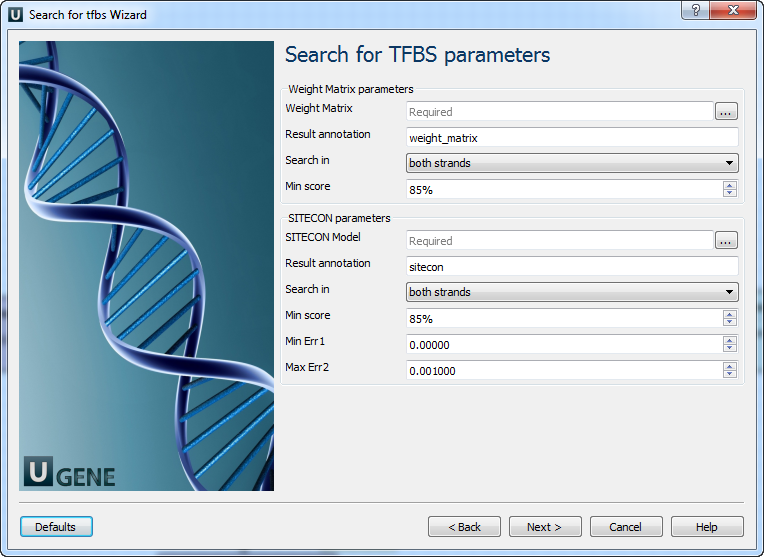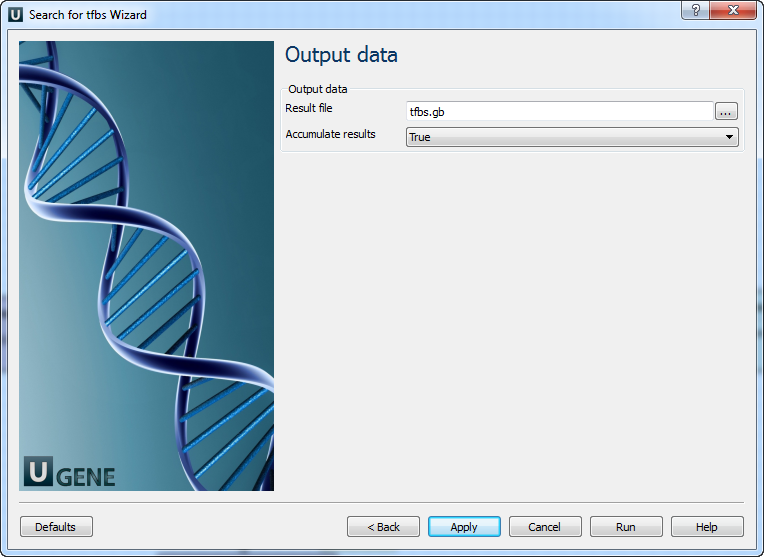This sample describes how to search for TFBS with a different methods and how to write the results into one output file.
First, the workflow reads sequences input by a user. Then, each sequence goes to searching TFBS elements. At that time two reading elements reads the matrix and model for TFBS searching and transfering this data into TFBS searching elements. After that the TFBS searching elements searches TFBS in the input sequences. After that the two data flows multiplexes into one output data flow. And finally, the multiplexed data are written into file, specified by a user.
You can configure the parameters of Search for TFBS with Weight Matrix, Search TFBS with SITECON and Multiplexer elements.
How to Use This Sample
If you haven't used the workflow samples in UGENE before, look at the "How to Use Sample Workflows" section of the documentation.
Workflow Sample Location
The workflow sample "Search for TFBS" can be found in the "Data Merging" section of the Workflow Designer samples.
Workflow Image
The workflow looks as follows:

Workflow Wizard
The wizard has 3 pages.
Input sequence(s): On this page you must input sequence(s).

Search for TFBS parameters: On this page you can modify search for TFBS parameters.

The following parameters are available:
Weight Matrix Semicolon-separated list of paths to the input files. Result annotation Annotation name for marking found regions. Search in Which strands should be searched: direct, complement or both. Min score
Minimum score to detect transcription factor binding site SITECON model
Semicolon-separated list of paths to the input files. Result annotation
Annotation name for marking found regions. Search in
Which strands should be searched: direct, complement or both. Min score
Minimum score to detect transcription factor binding site Min err1 Alternative setting for filtering results, minimal value of Error type I.
Note that all thresholds (by score, by err1 and by err2) are applied when filtering results.Max err2 Alternative setting for filtering results, max value of Error type II.
Note that all thresholds (by score, by err1 and by err2) are applied when filtering results.Output data: On this page you can modify output parameters.

The following parameters are available:
Result file
Location of output data file. If this attribute is set, slot "Location" in port will not be used.
Accumulate results
Accumulate all incoming data in one file or create separate files for each input.In the latter case, an incremental numerical suffix is added to the file name.